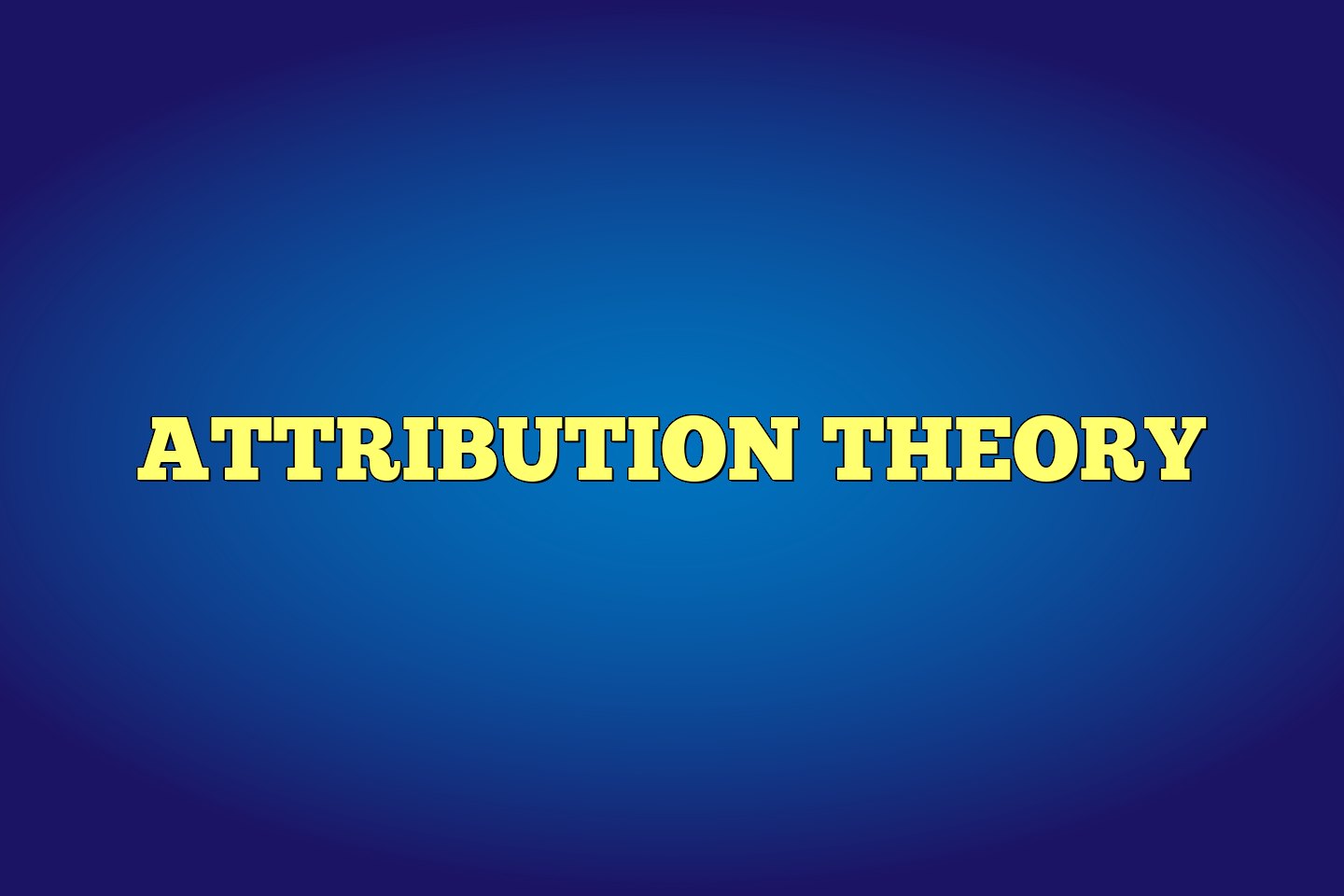Attribution theory is a psychological concept that seeks to explain how individuals interpret and make sense of the world around them. It focuses on how people attribute causes to events, behaviors, and outcomes, and how these attributions influence their thoughts, feelings, and actions. In understanding human behavior, attribution theory plays a crucial role as it provides insights into why people behave the way they do and how they perceive and react to their environment. By understanding the underlying cognitive processes behind attribution, we can gain a better understanding of human behavior, motivations, and decision-making. This essay will explore the role of attribution theory in understanding human behavior and its implications in various contexts.

Attribution theory focuses on how people attribute the cause of an event and how those beliefs interact with internal perception of themselves. Attribution Theory defines three major elements of cause: Locus, Stability, and Control ability.
1. Locus – determining the location of the cause—internal (dispositional) or external (situational) to the person • Influential to feelings of self-esteem and self-efficacy • If success or failure is attributed to internal factors, success will lead to pride and increased self-efficacy, whereas failure will diminish self-esteem and negatively affect self-efficacy
2. Stability – whether the cause is static or dynamic over time • Closely related to expectations and goals in the future • If students attribute their failure to stable factors such as the difficulty of the subject, they will expect to fail in that subject in the future
3. Controllability – whether the person is actively in control of the cause • Related to emotions such as anger, pity, gratitude, or shame • Conflict can arise if we feel we have not done our best; guilt • If we attribute our own abilities to success we will increase self-efficacy • Failing at a task we cannot control can lead to shame or anger.